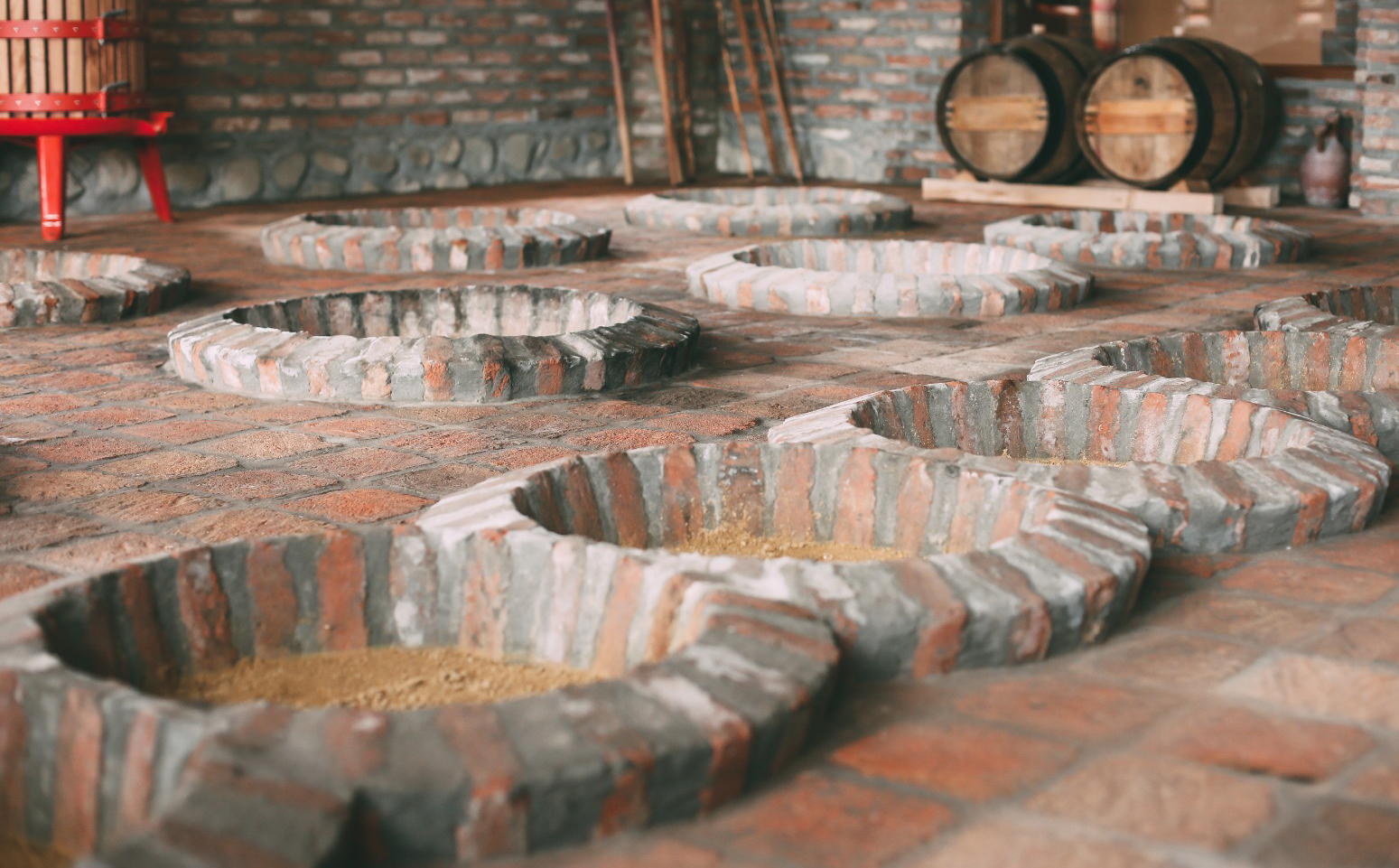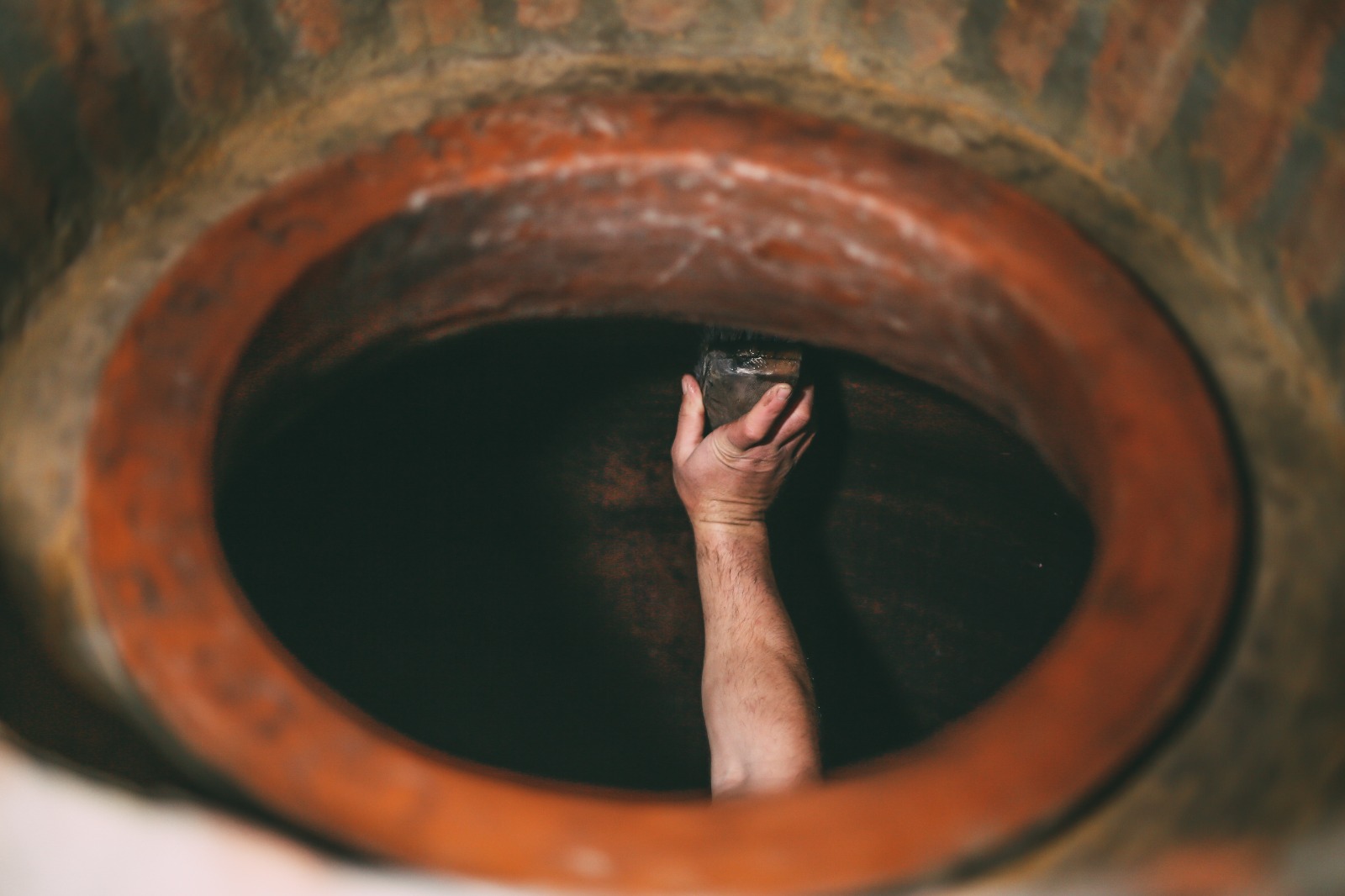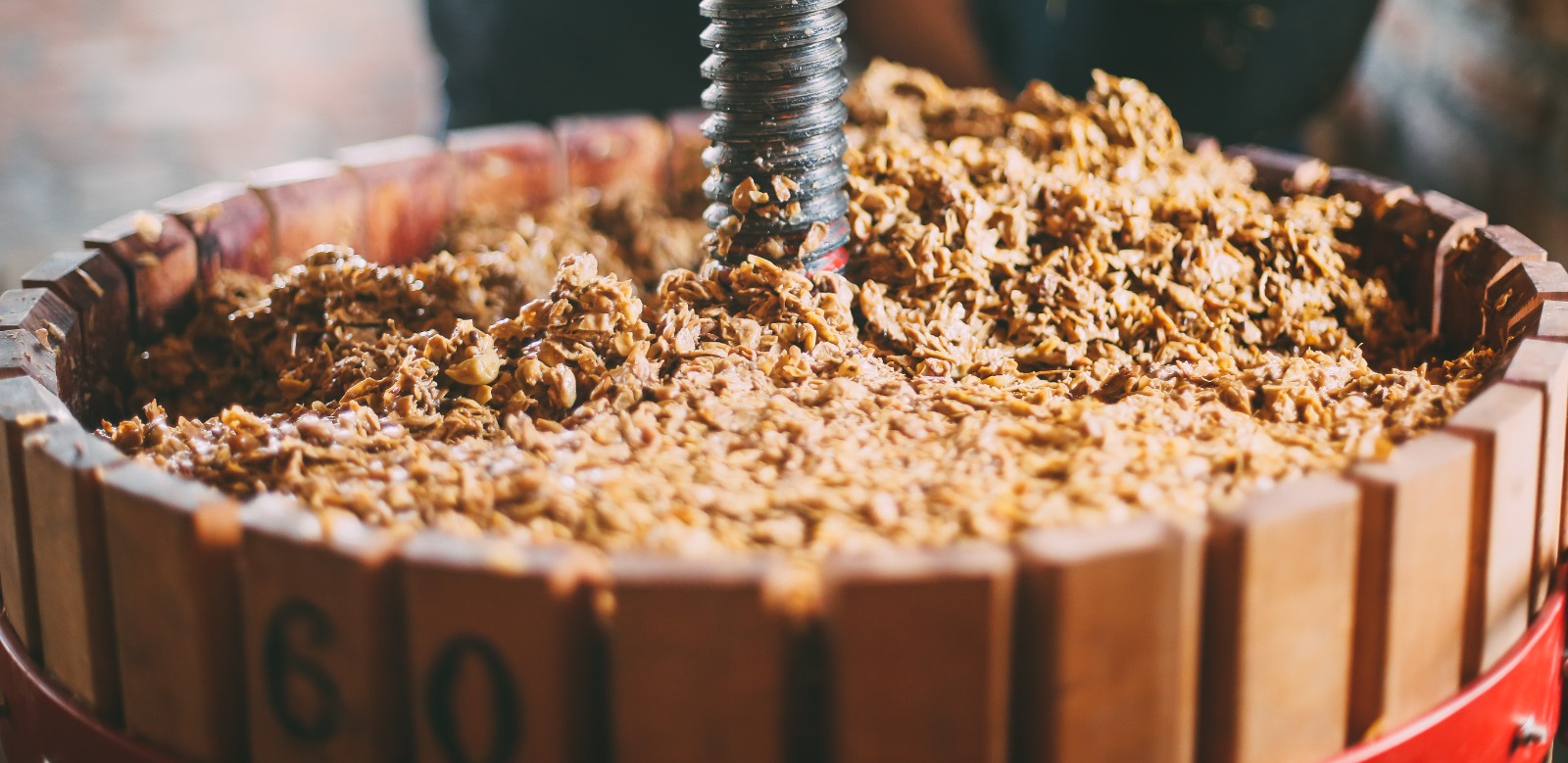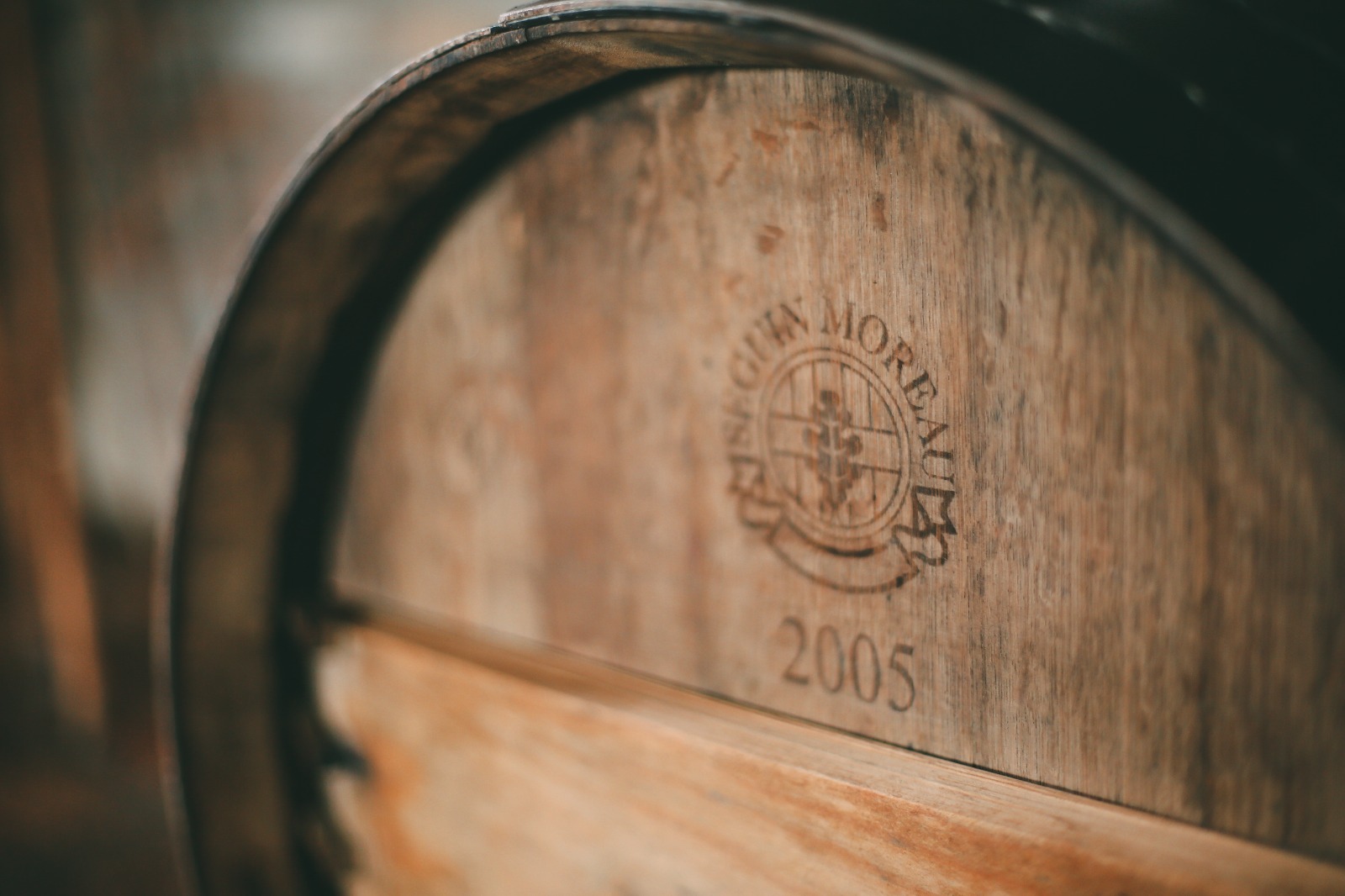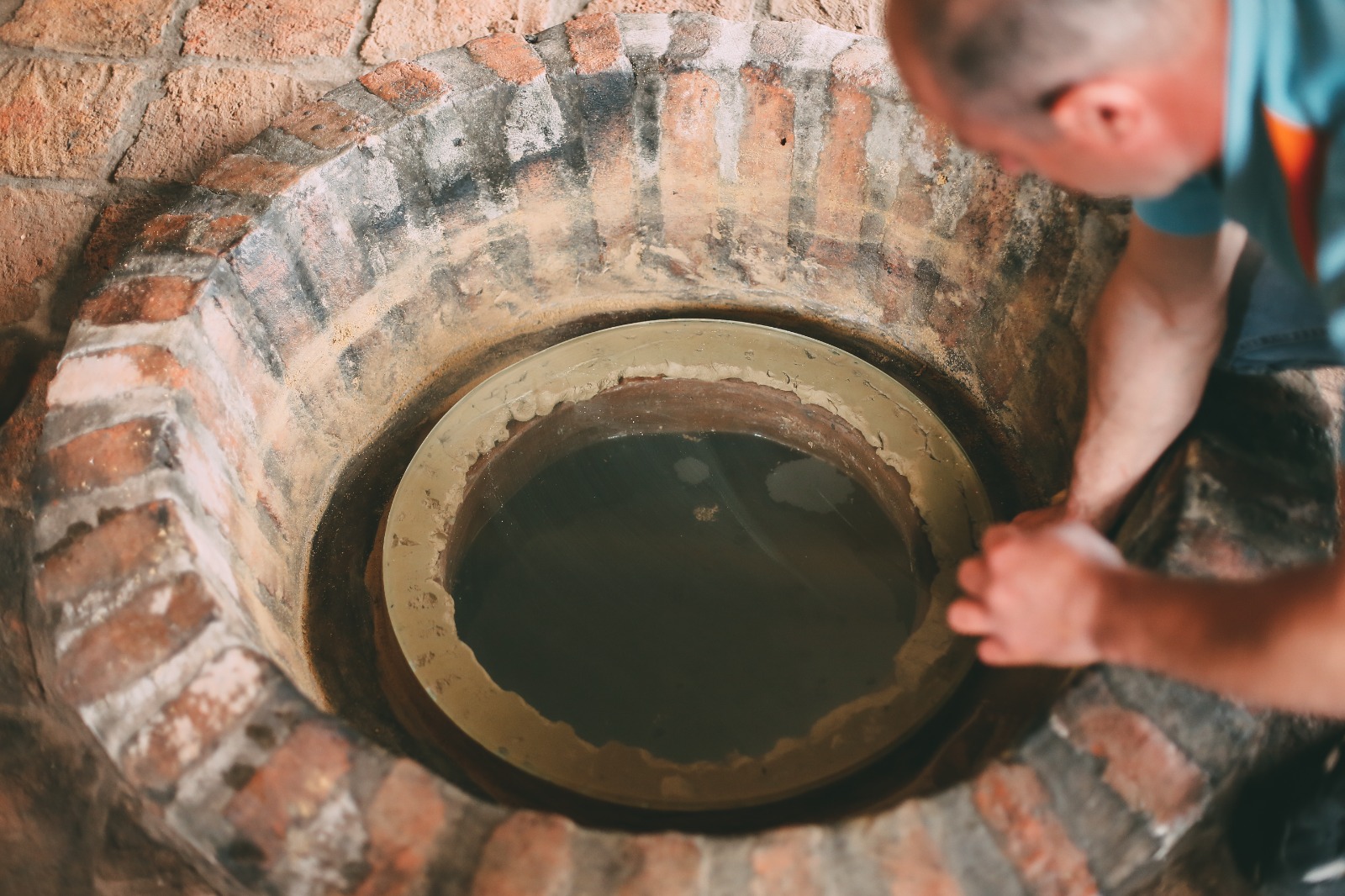Old Vines and Indigenous Varieties
The strength of Teleda Orgo lies in its old vineyards—vines that are 50 years old or even older. While these mature vines yield a smaller harvest, the grapes they produce stand out for their depth, complexity, and elegance. Old vines have a unique ability to absorb the full richness of the soil and capture solar energy, which translates directly into the wine’s rich flavor and distinctive character.
Great care is taken during harvest, with grapes picked entirely by hand and meticulously sorted. Only healthy, fully ripened clusters are selected to be placed in the qvevri. Thanks to this careful approach, every bottle under the Teleda Orgo brand reflects a labor of love and dedication—a wine filled not only with the warmth of the sun and the strength of the land, but also with the energy and spirit of the people behind it.
Vineyard Specifics
Teleda Orgo’s vineyards are located in the Tsinandali PDO—specifically in the villages of Kondoli and Kurdgelauri. Thanks to the area’s exceptional natural conditions, our ancestors chose this land centuries ago for cultivating grapevines. The unique combination of optimal microclimate and fertile soils allows for the production of distinctive wines.
The topsoil in this area is a mix of clay and sand, while the subsoil is rich in calcium, ensuring excellent drainage. This natural balance directly influences the wine’s structure and flavor profile.
The Tsinandali PDO is also known for its low humidity and abundant sunshine—both critical for healthy vine development. Throughout the summer, the warmth of the sun infuses the grape clusters, enriching them with sweetness, which later transforms into aroma, body, and color in the wine.
Rkatsiteli, Kisi, Saperavi, and Kakhetian Mtsvane are some of Georgia’s endemic grape varieties from which Teleda Orgo crafts complex wines of exceptional structure and character.
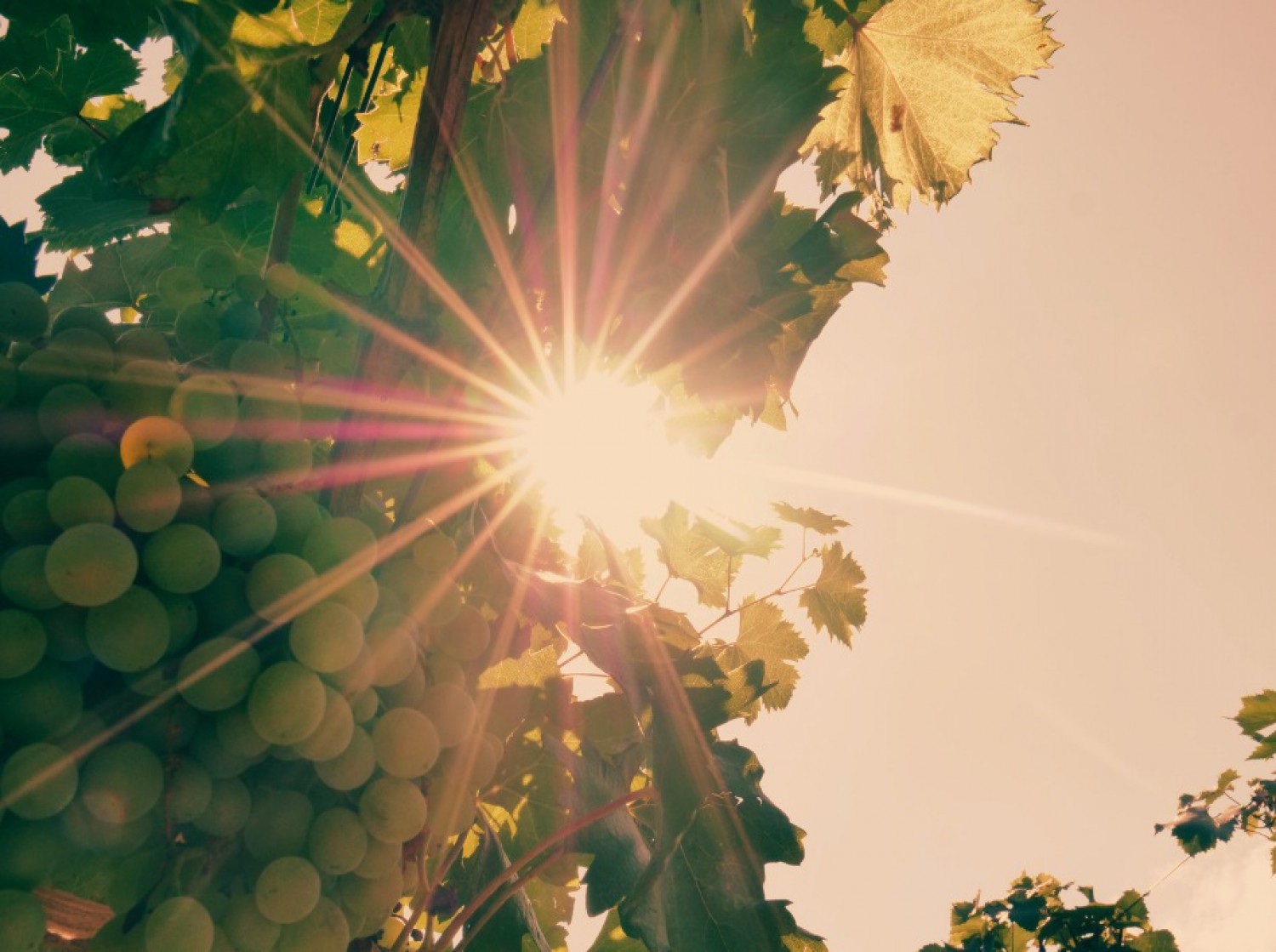
Qvevri – An Ancient Winemaking Tradition
At Teleda Orgo, we make our wine in qvevri, a traditional Georgian clay vessel that allows for natural fermentation and aging. This process ensures a steady, gradual temperature change and enables maximum extraction of tannins and aromatic compounds.
Teleda Orgo has two cellars that house 49 large qvevris, each with a capacity of 2,000 liters. These spaces have become the true heart of the winery — places where the wine “speaks” to the winemaker. The wines crafted here are known for their complex flavors, balanced tannins, and distinct structure.
In addition to the traditional Kakhetian qvevri method, we also use classical European techniques and are open to experimentation. One such example is Teleda Orgo’s “Brut”, a sparkling wine made from the Kakhetian grape variety Mtsvane. The initial fermentation takes place in qvevri, followed by secondary fermentation in the bottle.
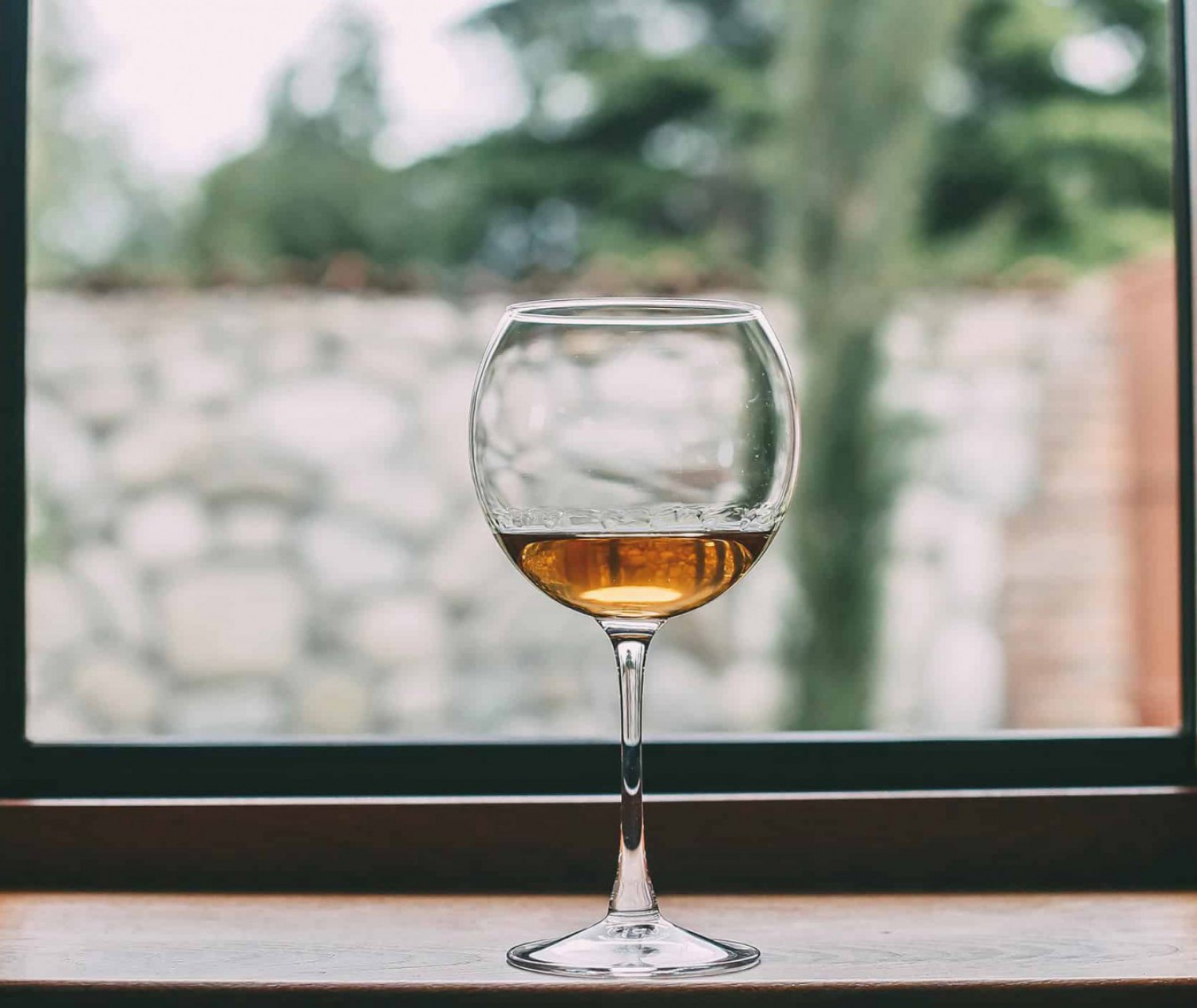
Sustainable Viticulture—Respect for the Ecosystem
Our company clearly follows the principles of sustainable viticulture, which include respect for the local ecosystem and natural cycles, as well as an integrated approach to soil, vine, and environmental protection. We use minimal crop protection products during the cultivation process, striving to pay more attention to natural methods.
Additionally, our zero-waste policy is important, as it enhances the purity and ecological reliability of our wines.
We value personal labor—treating every person involved in the process with respect.
For Teleda Orgo, ecosystem sustainability is a priority that the founders have pursued since the very beginning of the winery. We believe that healthy soil largely determines the character and energy of the wine, which is reflected in every season’s harvest.


